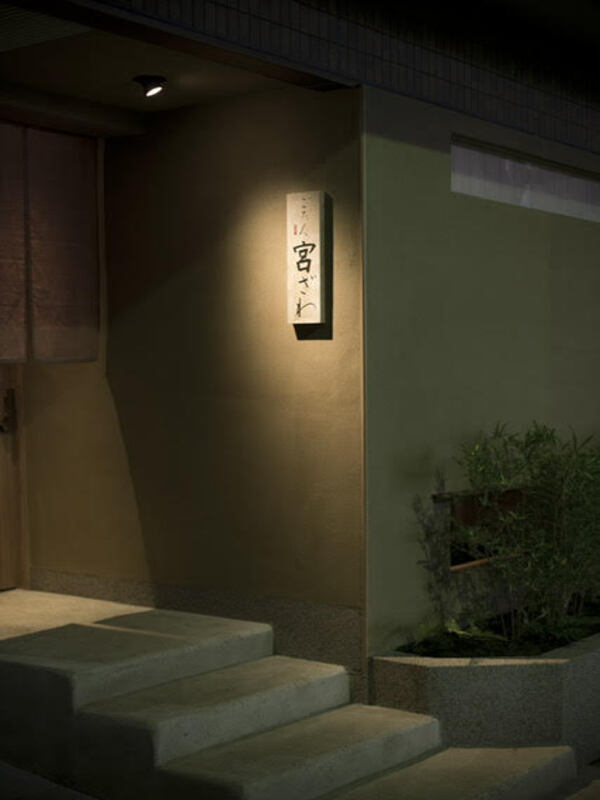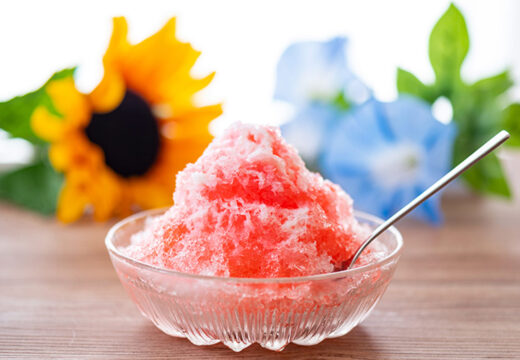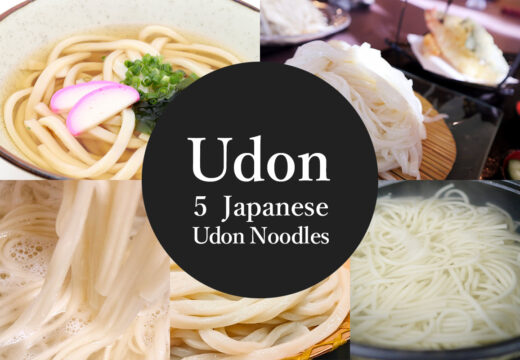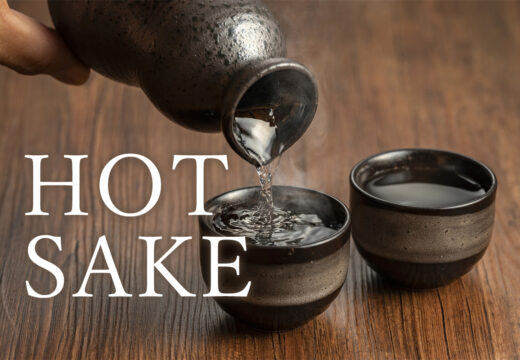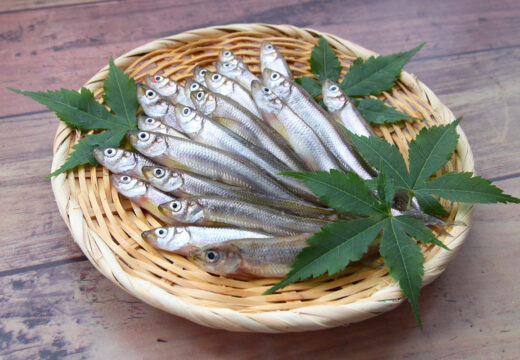Godan Miyazawa: A Once-in-a-Lifetime Tea Kaiseki Experience That Delights All Five Senses at a Michelin-Starred Restaurant
Category: Food&Drink
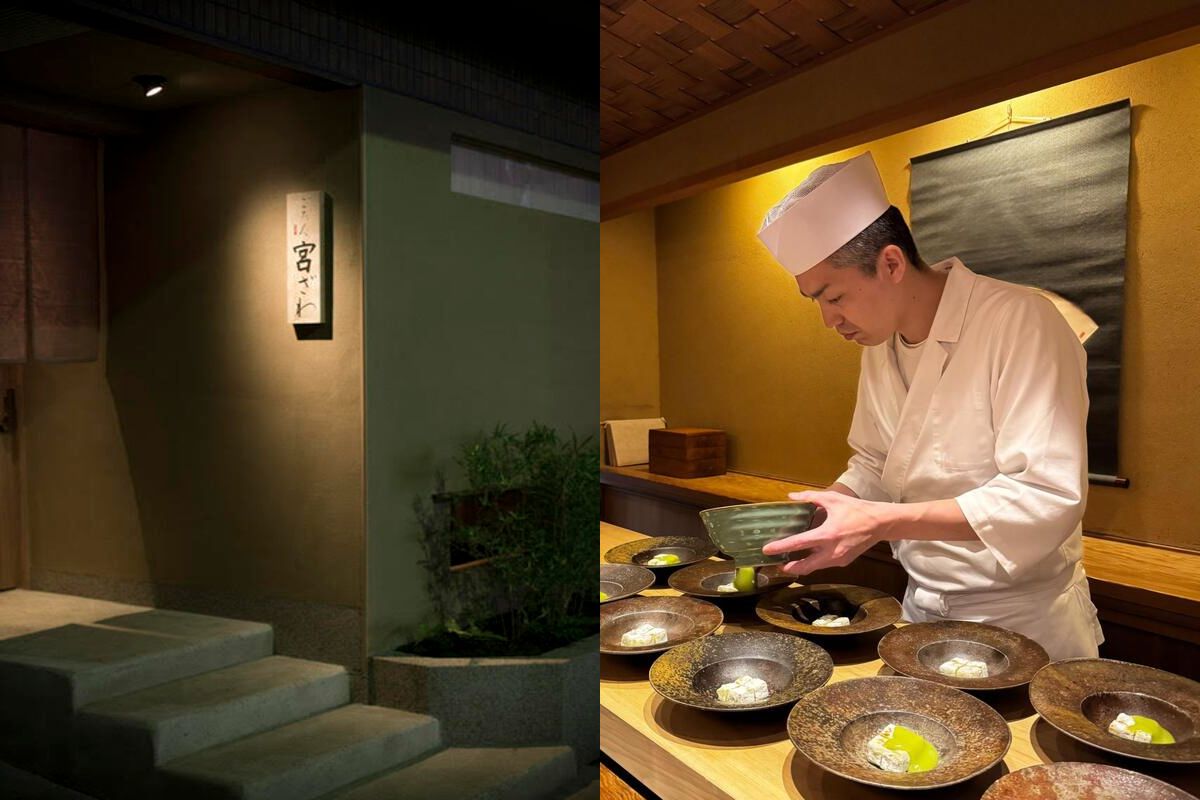
Nestled quietly in a traditional Kyoto townhouse in the serene Shimogyo district, Godan Miyazawa is a kaiseki restaurant that has continuously earned one Michelin star in the Michelin Guide Japan through the 2025 edition. Restaurant has excellent access—just a 3-minute walk from Exit 1 of Gojo Station on the Kyoto City Subway. This culinary gem is really worth a visit.
In this article, we share our firsthand experience of dining at Godan Miyazawa and explore the unique charms of the restaurant.
Reserve your table at Godan Miyazawa here
The Space of Godan Miyazawa — A Setting Embodying the Spirit of “Wa”
As soon as you step inside, you’re welcomed into a serene space that preserves the charm of a traditional Kyoto townhouse while exuding a refined modern aesthetic. The atmosphere, blending tradition and contemporary elegance, gently embraces each guest.
The name “Godan” comes from the traditional godan-tsuki no chaji (a formal tea gathering accompanied by cuisine), reflecting the restaurant’s deep respect for the unity of tea and hospitality through food.
Currently helmed by Head Chef Mr. Oyama, who assumed his role in January 2025, the restaurant continues to evolve under his refined culinary skills and sense of aesthetic.
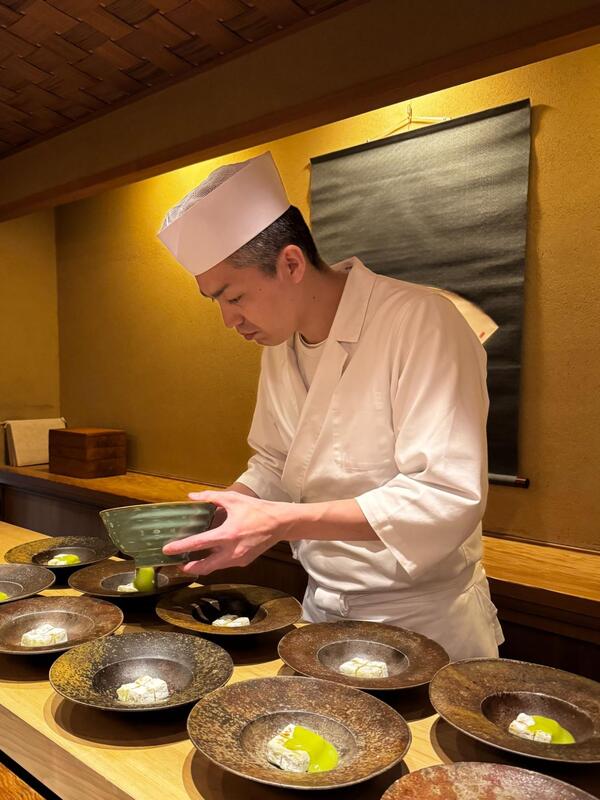
Hailing from Gifu Prefecture, Oyama moved to Kyoto after high school to study Japanese cuisine. After building his foundations at a culinary school and gaining experience in various Japanese restaurants, he joined Miyazawa and honed his craft for 10 years before taking the helm.
The owner, Mr. Miyazawa, also trained at Kakiden, a catering service specializing in tea kaiseki. His deep understanding extends beyond cuisine to include the tea ceremony’s spirit and spatial design. The Miyazawa group now operates three restaurants—Jiki Miyazawa, Godan Miyazawa, and Doppo—and has pursued the essence of Japanese cuisine in Kyoto for over 20 years.
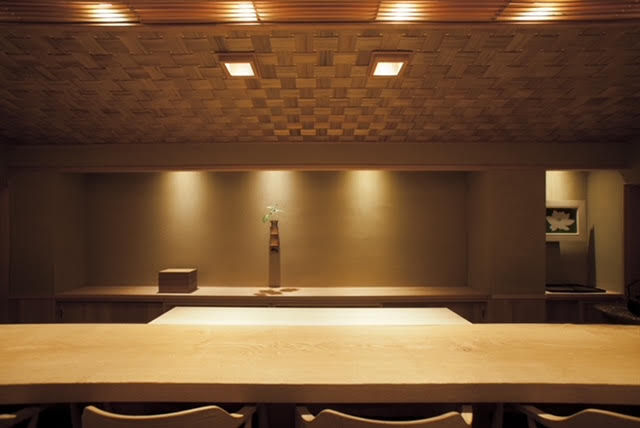
The main seating area is centered around a stunning single-plank chestnut wood counter. The interior, with seasonal décor, remind both a museum and a tea room. Warm lighting and a woven ajiro ceiling made of Kurobe cedar create a tranquil, sophisticated atmosphere.
The tableware is equally captivating. From Shigaraki and Karatsu pottery to contemporary artists’ works and even 400-year-old pieces, each vessel carries a story.
Owner Miyazawa believes that even if a dish breaks, it’s his responsibility—a testament to his deep respect for each item, suggesting this is far more than just a restaurant.
Because the tableware changes daily, every visit offers a new encounter. Beyond the flavors, each meal tells a story through its vessels—a truly exceptional experience.
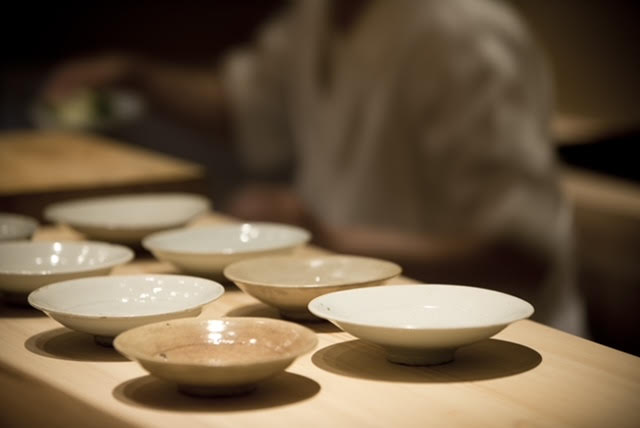
Cuisine as the Culmination of Encounters
Everything Begins with the First Sip
The culinary journey begins with a cup of roasted rice tea—mild, gentle, and uniquely comforting. This simple but original welcome left a lasting impression.
Ingredients are carefully sourced and minimally seasoned—little to no sugar, light use of salt. The focus is entirely on the natural flavors of the ingredients. Even for fried items, the use of rice oil and taihaku sesame oil ensures a surprisingly light texture.
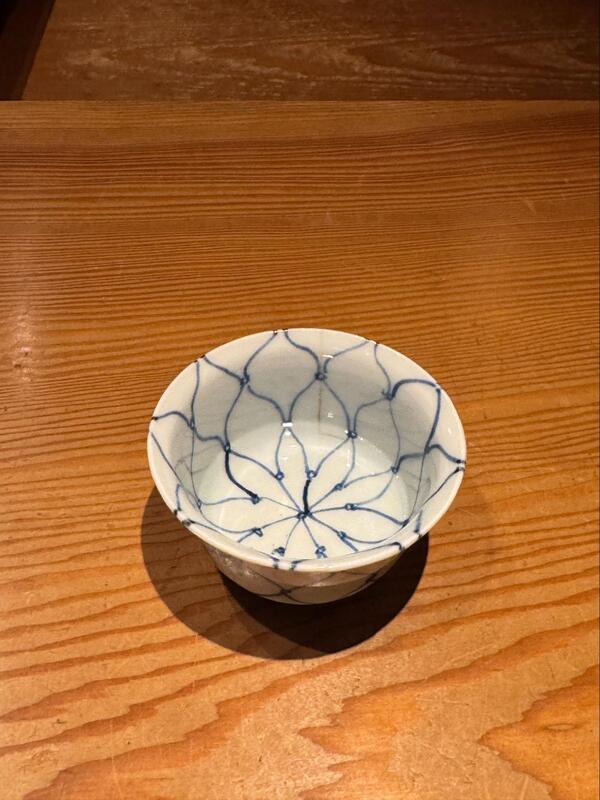
The restaurant emphasizes local connections, sourcing seasonal vegetables—mainly Kyoto produce—with reduced pesticides from nearby greengrocers.
Seafood is procured directly from trusted fishermen in Mie and Oita Prefectures, with particularly long-standing relationships in Mie which began before the restaurant’s opening.
Dishes are crafted by listening attentively to seasonal transitions and the voice of each ingredient, all in pursuit of “the most delicious thing at that very moment.”
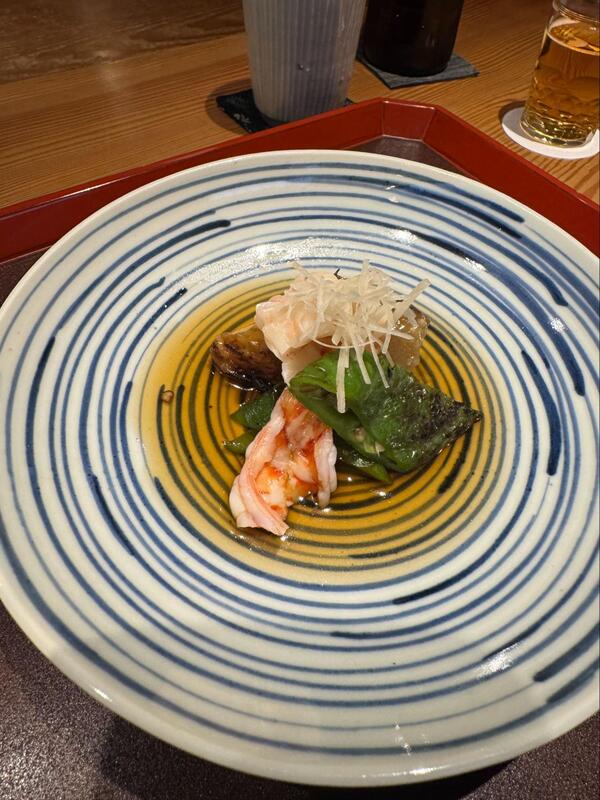
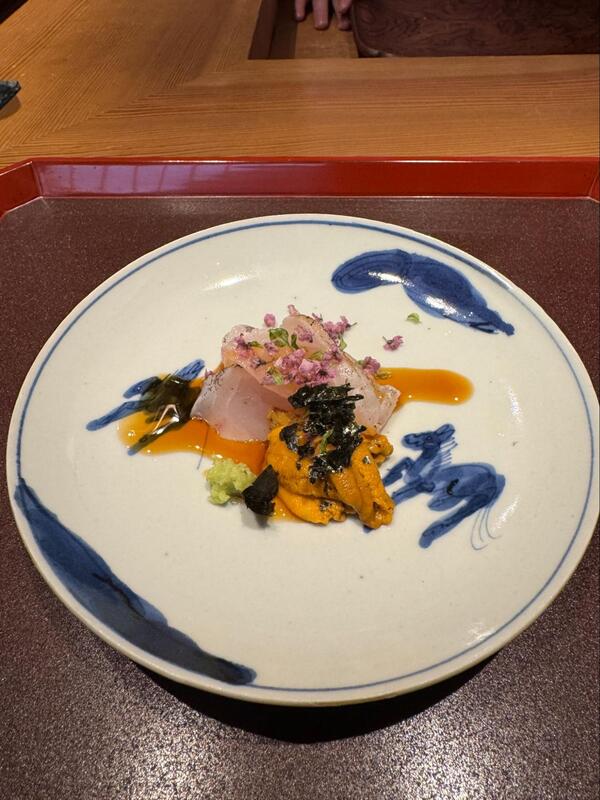
Ayu — A Taste of Connection, Enhanced with Vinegar
On this visit, the ayu (sweetfish) came from Azumigawa in Shiga Prefecture, supplied by a trusted longtime partner. It`s freshness and quality were immediately apparent—even to non-professionals.
The salt-grilled ayu, delicately grilled over charcoal, was elevated further with a touch of vinegar, which sharpened and brightened the fish’s natural flavors.
The head and tail, deep-fried to a crisp, were so light and fragrant that the whole fish could be enjoyed—an offering of nature in one plate.
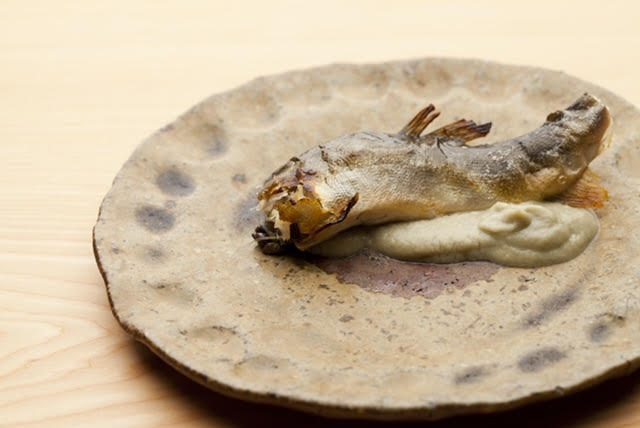
Soba — Gracefully Crossing the Line Between Japanese and Western
Later in the course came two types of soba. One was sprinkled with karasumi (dried mullet roe), evoking the essence of pasta. The other was served in a rich duck broth, it`s savory depth warming the body from within.
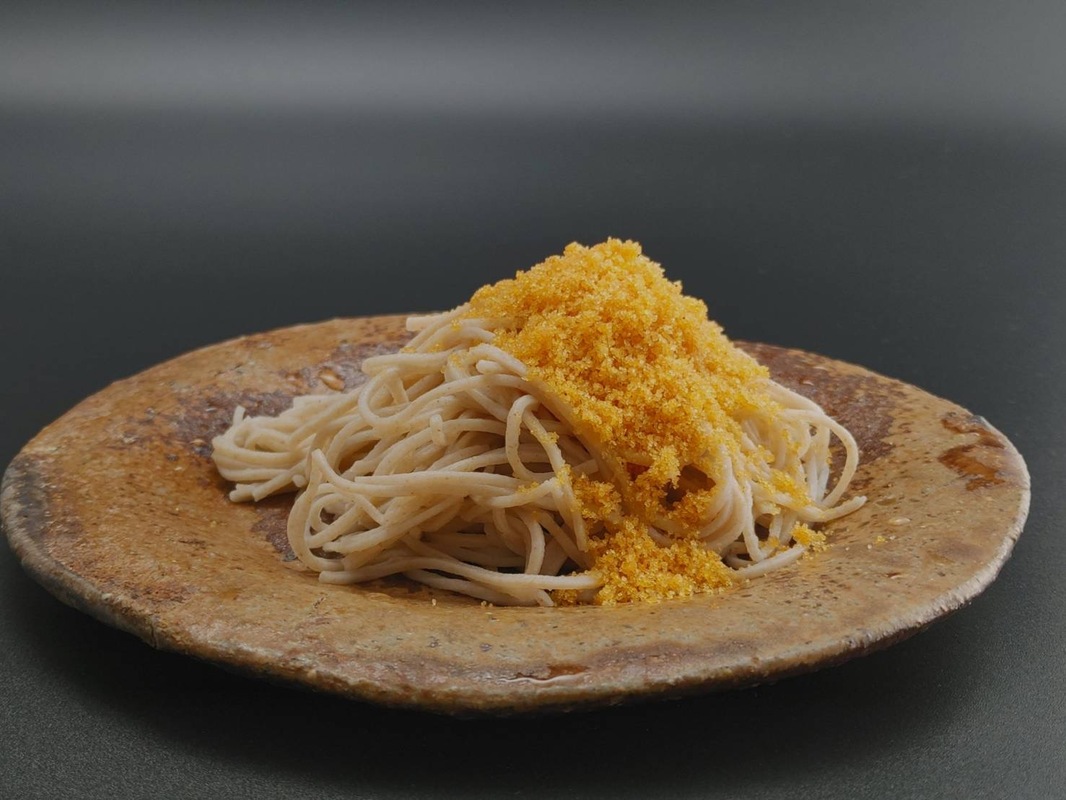
Shiga’s Blessing in Donabe Rice, Savored in Three Ways
The meal concluded with donabe-cooked rice served with homemade pickles. The rice, called Kiramizuki, is a variety of Omi rice from Nagahama, Shiga Prefecture, cultivated without pesticides or fertilizers. It’s been rated equal to or better than Koshihikari in quality evaluations.
The donabe rice transforms over time: initially firm and fragrant in the nibehana stage (just-cooked), then growing sweeter and fluffier after five minutes. You can observe and savor the subtle shifts as it continues to steam.
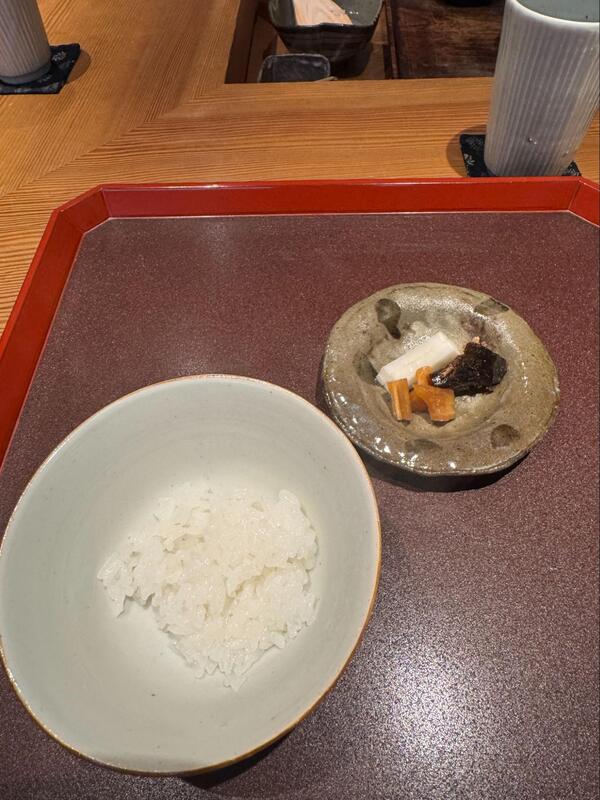
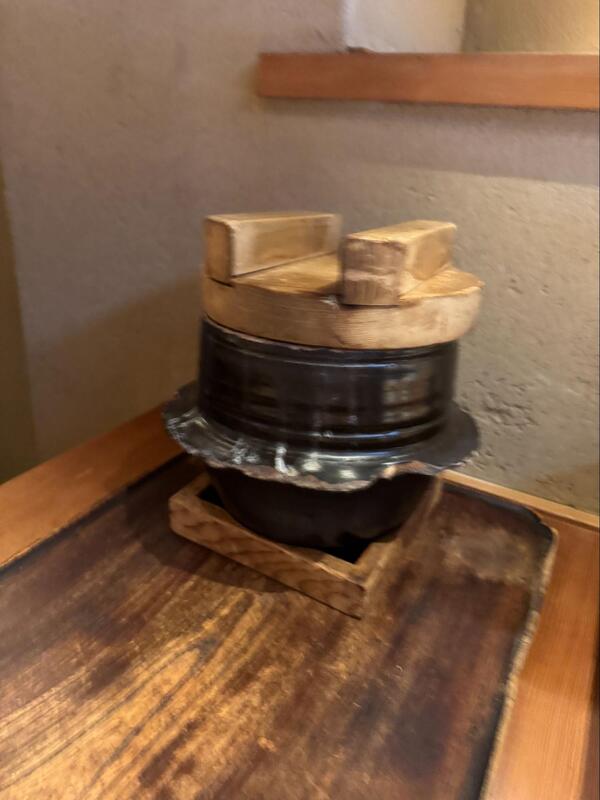
The Sweet Finish and a Bowl of Tea
Three types of desserts are presented at the end—fruit, zenzai (sweet red bean soup), and house-made karinto (deep-fried sweet dough). Even the order reflects thoughtful hospitality.
The idea was simple: “Wouldn’t it be nice to end with a sweet you can enjoy in one bite?” This consideration for the guest is woven into every dish.
That day’s fruit featured mango and muscat grapes from Miyazaki—elegantly sweet and juicy, they gently refreshed the palate.
Next came chilled zenzai, rustic and comforting, warming the heart from within.
Finally, the karinto—made with brown sugar from Kakeromajima—was rich and fragrant, its natural sweetness lingering long after the meal.
Such mindful attention to detail, even in a single sweet, is a signature of Godan Miyazawa.
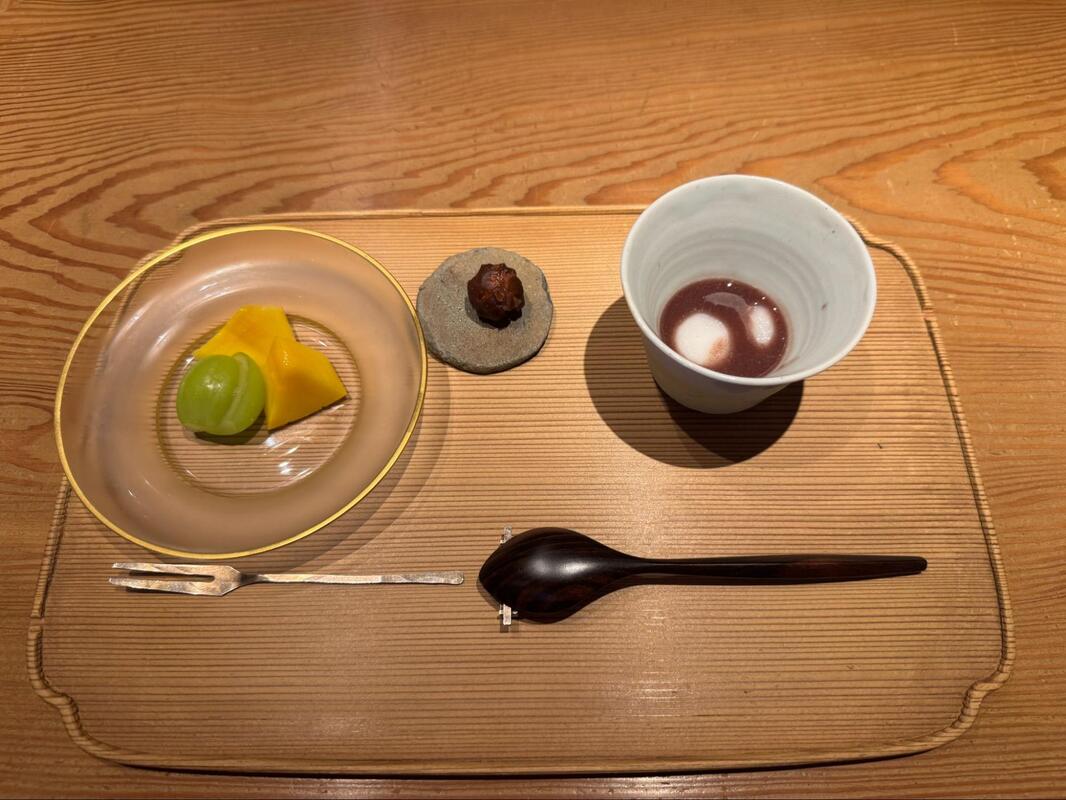
The meal concludes with matcha from Kyoto’s famous tea shop Ofuku-en. Its refined bitterness and mellow tone offer a perfect finale to the experience.
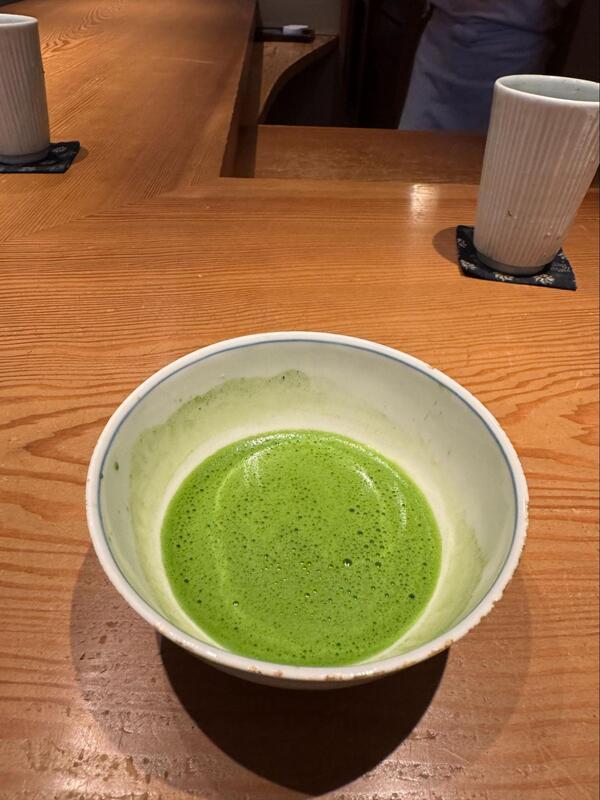
Hospitality That Captivates International Guests
Chef Oyama shares, “The moment someone steps into the restaurant, they become a precious guest with whom we share a special connection. We approach every day with the spirit of service.”
Godan Miyazawa welcomes guests from all over the world—including the U.S., Europe, Hong Kong, Taiwan, and Korea.
A particularly memorable moment: guests tasting the grilled sesame tofu, a Miyazawa specialty, often exclaim, “I’ve never had this texture in my life!” Especially popular is the seasonal version—like the corn-flavored tofu served in July and August.
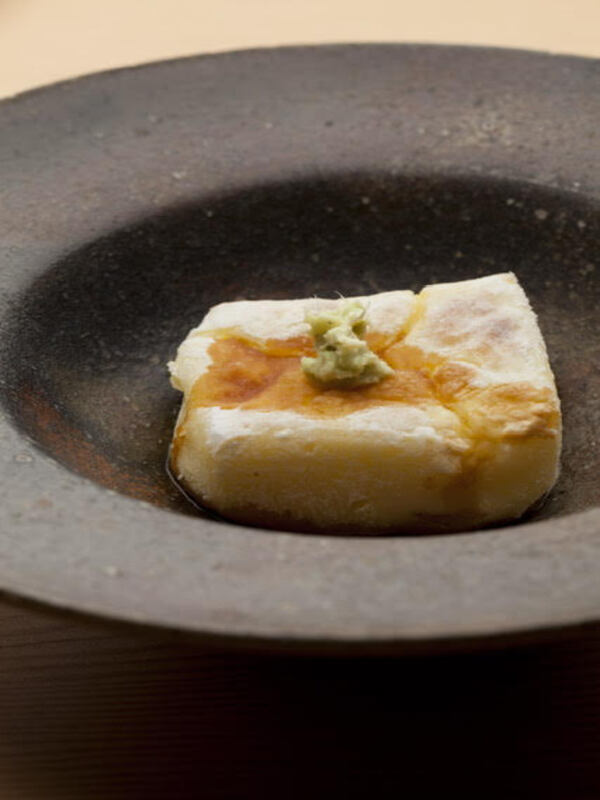
While the main seating is at the counter, private rooms are available for families with small children. In Kyoto, it’s rare for preschool-aged children to be welcomed into such serene spaces, making this an especially thoughtful option for travelers with young ones.
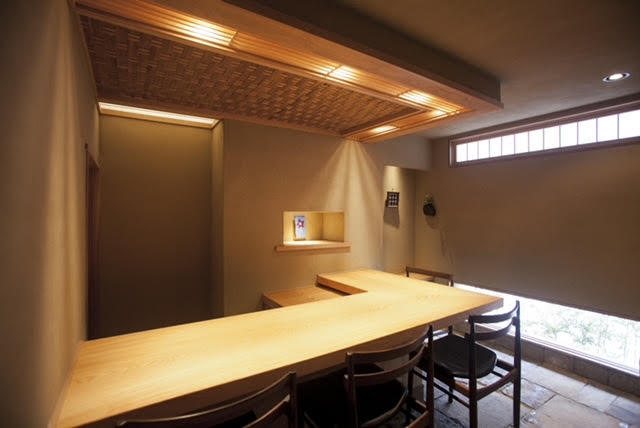
The warmth of the hospitality explains the restaurant’s loyal regular guests and steady stream of international visitors. Each seat and each dish reflects a consistent gaze of care and kindness, offering meals that stay in the memory like a family tradition.
All Eyes on the New Lunch Courses Starting August 2025!
Chef Oyama’s passionate desire to make Japanese cuisine more accessible has led to the launch of two new lunch course options:
・¥8,000 (excluding tax and service charge)
・¥13,500 (excluding tax and service charge)
(10% service charge applies)
Perfect for the younger generation or those new to kaiseki who usually opt for quick lunches, these courses offer a more approachable gateway into authentic Japanese cuisine.
Every visit soothes the soul with seasonal ingredients and sincere hospitality—making it a place guests want to return to again and again.
If you’re visiting Kyoto, be sure to stop by. You’ll get a truly special experience.
Restaurant Information
Name: Godan Miyazawa
Address: 557 Oe-cho, Higashinotoin Manjuji-agaru, Shimogyo-ku, Kyoto-shi, Kyoto
Hours: Lunch from 12:00 / Dinner from 18:00 (Reservation-only)
Closed: Tuesdays
Courses: Lunch from ¥8,000 / Dinner from ¥20,000 (tax and 10% service not included)
Website: https://jiki-miyazawa.com
Reserve your table at Godan Miyazawa here
